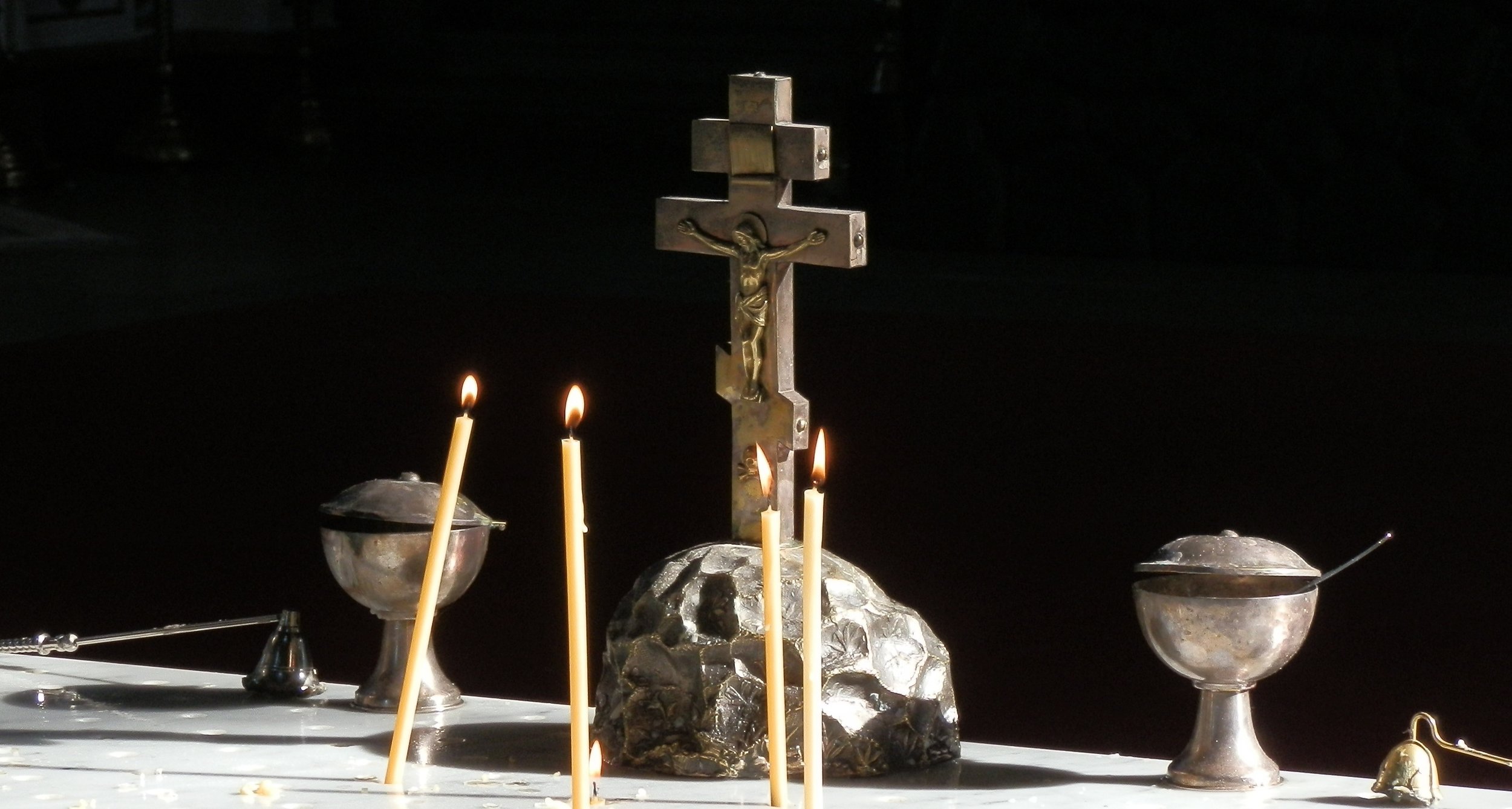Healing Atonement
Gregory of Nazianzus (329 - 397 AD)
An old clay oil lamp from Nazareth, Israel. Photo credit: Olivia Armstrong.
The Writings of Gregory of Nazianzus
Gregory of Nazianzus, Epistle 101 to Cledonius the Priest Against Apollinarius says, "For that which He has not assumed He has not healed; but that which is united to His Godhead is also saved. If only half Adam fell, then that which Christ assumes and saves may be half also; but if the whole of his nature fell, it must be united to the whole nature of Him that was begotten, and so be saved as a whole...Keep then the whole man, and mingle Godhead therewith, that you may benefit me in my completeness."
Gregory of Nazianzus, Oration 2, paragraphs 18, 22 - 25 the entire sermon is about God's diagnosis and healing of human nature; Jesus' atonement is medical on behalf of our humanity
Gregory of Nazianzus, Oration 20, paragraph 13 says, "He who is rich is a beggar - for he goes begging in my flesh, that I might become rich in his godhead"
Gregory of Nazianzus, Oration 22, paragraph 13
Gregory of Nazianzus, Oration 30, paragraphs 5 - 6 says, "as for my sake He was called a curse, Who destroyed my curse; and sin, who takes away the sin of the world; and became a new Adam to take the place of the old, just so He makes my disobedience His own as Head of the whole body. As long then as I am disobedient and rebellious, both by denial of God and by my passions, so long Christ also is called disobedient on my account. But when all things shall be subdued unto Him on the one hand by acknowledgment of Him, and on the other by a reformation, then He Himself also will have fulfilled His submission, bringing me whom He has saved to God. For this, according to my view, is the subjection of Christ; namely, the fulfilling of the Father's Will. But as the Son subjects all to the Father, so does the Father to the Son; the One by His Work, the Other by His good pleasure...in the character of the Form of a Servant, He condescends to His fellow servants, nay, to His servants, and takes upon Him a strange form, bearing all me and mine in Himself, that in Himself He may exhaust the bad, as fire does wax, or as the sun does the mists of earth; and that I may partake of His nature by the blending. Thus He honours obedience by His action, and proves it experimentally by His Passion"
Gregory of Nazianzus, Oration 45, paragraphs 13 and 22
Gregory of Nazianzus, Oration 45, paragraph 28 says, “We needed an Incarnate God, a God put to death, that we might live. We were put to death together with Him, that we might be cleansed; we rose again with Him because we were put to death with Him; we were glorified with Him, because we rose again with Him.”
More Resources on Gregory of Nazianzus
T.F. Torrance, Theology in Reconciliation. Wipf and Stock | Amazon page, 1996. See p.154 - 156
Aidan Kimel, Gregory of Nazianzus and the Apollinarian Nonsense. Eclectic Orthodoxy blog, Oct 8, 2013.
Fr. Maximos Constas, Did Christ Repent? The Greek Fathers and the Vicarious Repentance of Christ (Part 1). The Pappas Patristic Institute, Oct 6, 2021. Constas argues that T.F. Torrance misunderstood Gregory of Nazianzus’ axiom, and argues for the unfallen humanity view.
Sources of Atonement Theology
These resources explore the foundation of “Medical Substitution” as the best understanding of the Bible, and the original understanding of the church. There are also links to books, web articles, etc. from representatives of the three broad Christian traditions.





